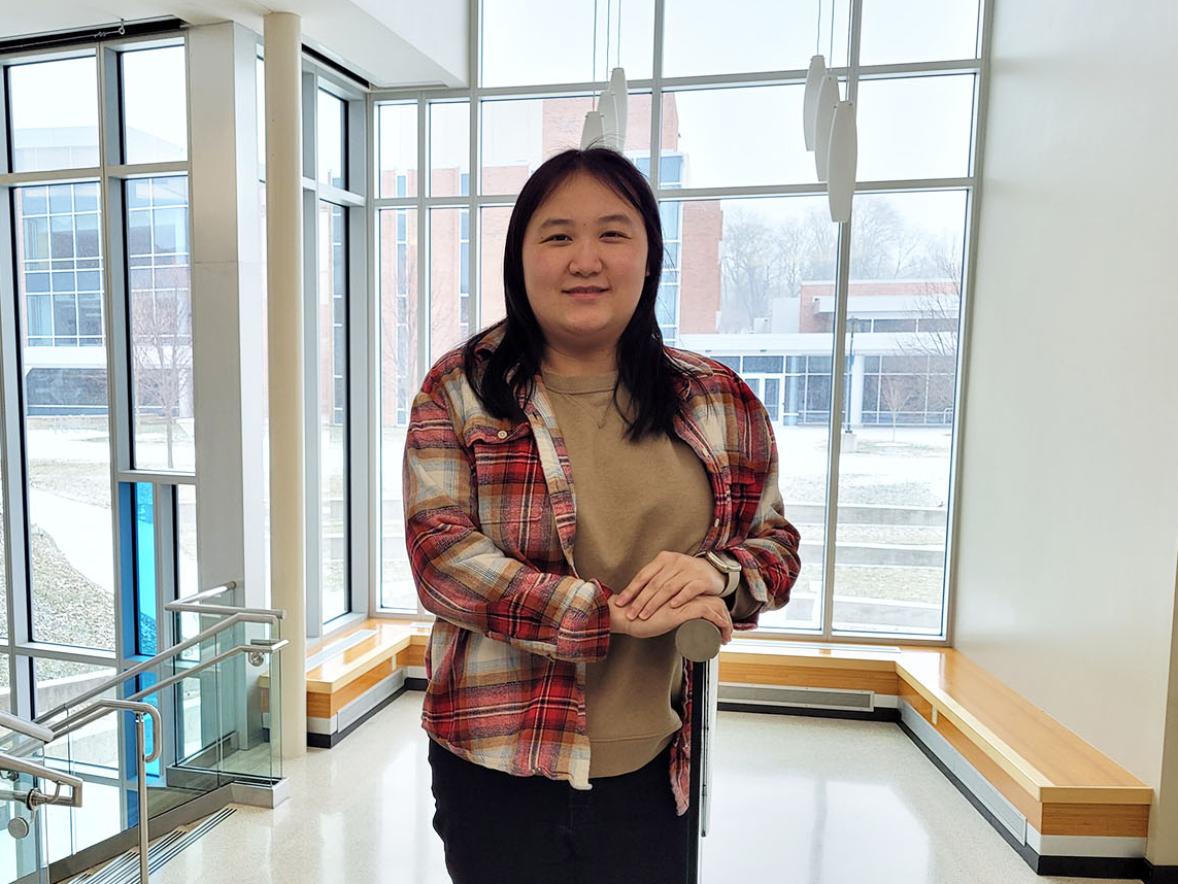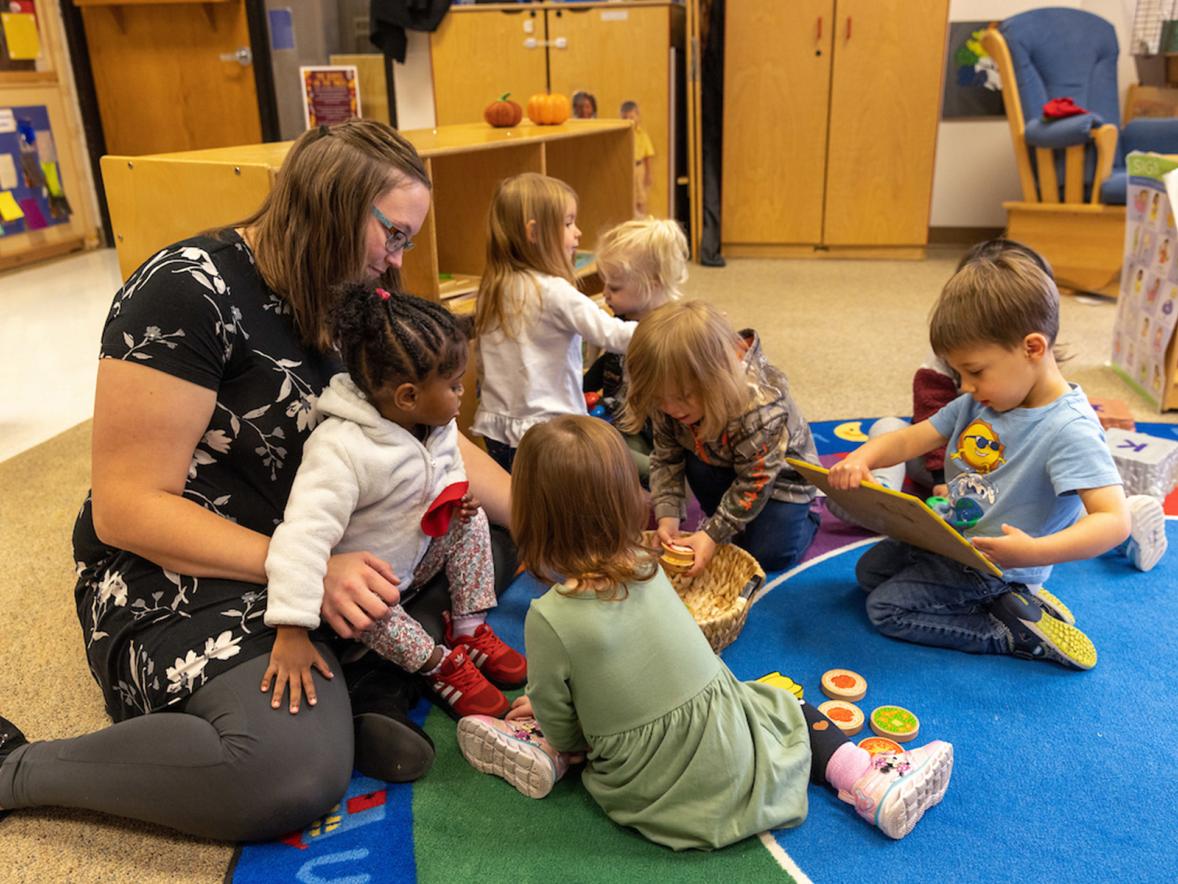Three UW-Stout students presented in a panel discussion at the National Council on Family Relations conference on Nov. 13, discussing their positive experiences in what they believe is an important career field.
Caroline Allaback, Ali O’Mara and Abigail Ronnei, seniors in human development and family studies, engaged with HDFS alumni, faculty and professionals to share recruitment and retention strategies for students in related programs.
Allaback, O’Mara and Ronnei represented the Stout Council on Family Relations, a student-led affiliate of the national organization. They presented on the virtual events SCFR is offering members this semester. They were joined by Candice Maier, assistant professor of HDFS and marriage and family therapy at UW-Stout, and two faculty members from UW-Stevens Point.
Their collaborative research project “Like Phoenix from the Ashes – Transformation in Challenging Times” addresses declining enrollment in family science programs across the UW System and universities nationwide.
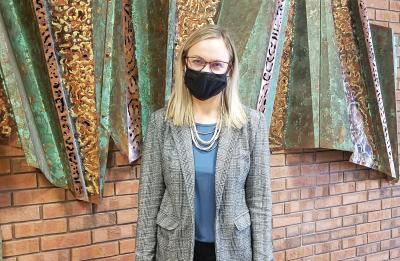
“In ancient Greek folklore, a phoenix is a long-lived bird that cyclically regenerates, rising from the ashes,” Maier said. “Family science is experiencing similar difficult times. Our presentation spoke to both the challenges and future opportunities for student affiliates, state affiliates and family science as a whole.”
UW-Stout’s HDFS program enrollment has dropped over the past five years, from 355 students in 2015 to its current enrollment of 185, including 91 on-campus and 94 in the online HDFS program. State affiliates have experienced a similar decline in enrollment in family science programs.
“This research was a model of collaboration between UW-Stout and UW-Stevens Point, which have been historic rivals,” Maier said. “Now we find mutual benefit and strength in uniting forces to grow numbers in family science programs for state affiliates.”
The research was submitted and accepted as part of the NCFR conference, which was held virtually.
Building recognition for human development and family studies
Family science professionals advocate for individuals and families in need, helping them find resources and services to lead better lives. They work with diverse groups of people in settings such as disability support programs, family resource centers, human service agencies, rehabilitation centers, senior care homes and youth mentoring programs.
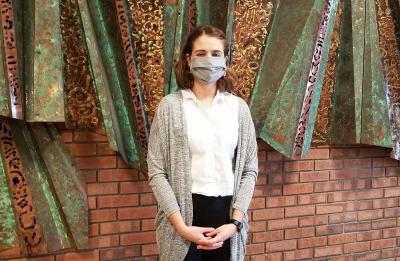
“The family science perspective is essential to understanding individuals as a whole,” Allaback said. “When you look at a person, their situation and the struggles they face, it helps to not only understand their psychology, but also the societal, cultural, social, biological and relational elements that combine to make a whole, unique and complex person.”
Professionals are vital to the care of the overall health and well-being of community members in need. However, family science has a long history of needing to justify its existence to other social science and humanities disciplines such as psychology or sociology. Family science is typically undervalued because it’s a newer and interdisciplinary field, Maier explained.
Family science programs also face the challenge of being unfamiliar to incoming and current students.
“Many students come to Stout not knowing about HDFS or what it entails,” Maier said. “They soon realize that helping others is their passion, and they either declare or transfer majors to HDFS. It’s important to continue offering such programs, as there is a need for helping services and family services.”
Allaback, O’Mara and Ronnei transferred into HDFS after starting in different programs. None of them had heard of HDFS before.
O’Mara and Ronnei wanted to be teachers, to work with children and help others. They learned more about HDFS in an introductory course.
O’Mara changed her major three times before deciding HDFS would be a perfect fit. “This major has so many great opportunities, great faculty and connections to build with students. I’m so grateful that I switched my major when I did,” O’Mara said.
Ronnei wasn’t far into her early childhood education degree when she realized she didn’t want to teach. “Switching to HDFS was one of the best decisions I have made in my college career,” Ronnei said. “HDFS allows me to still learn about children and development but gives me more career options.”
Allaback, who has a Spanish minor, started in graphic design and interactive media, but transferred to HDFS in her sophomore year. “I realized I had a passion for helping people and working to understand their struggles. I decided I wanted to pursue counseling as a career. HDFS has laid the perfect foundation of knowledge for me for a career in the helping professions,” she said.
Encouraging enrollment in human development and family studies
There are proven and effective strategies that lead to growth amidst these challenges, Maier said.
In the past, program leaders have met with high school students at career conferences and college fairs. She thinks this is the best way to encourage enrollment and improve retention.
“I definitely think reaching out to students in high school and telling them about the program and field as an important piece of social sciences is a great way to spread awareness about the major,” Allaback said.
HDFS students are also encouraged to join SCFR and engage as active students and professional affiliate members.
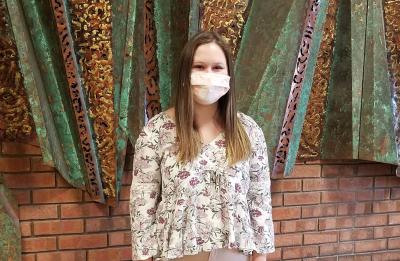
“There are so many great opportunities for students in HDFS, hands-on experiences and different organizations to join that are beneficial for you in college and even a career,” O’Mara said.
The student affiliate has existed for more than 30 years. It seeks to prepare students for HDFS careers by offering professional networking opportunities and events. Guest speakers engage members at meetings and speak on a variety of topics from sex trafficking prevention to student internship panels. The organization also participates in community volunteer activities, state and national conferences and other events.
SCFR student board members are responsible for planning these events, which are central to recruitment for the organization and program. Board members are Erica Gaetz, president, of Spencer, Wisc.; Kaitlyn Eyerly, vice president, of Cadott; Ronnei, secretary, of Mondovi; and Riley See, treasurer, of Westby.
A restructuring of the state affiliate would allow for shared opportunities and routine tasks across students, faculty and professionals, Maier said. “It would require getting professionals and students to come together once per month to plan annual conferences, develop newsletters and offer continuing education units.”
The seniors agree the panel went very well and enjoyed hearing the strategies shared by faculty and members across campuses.
“It was a great experience and gave us information we can use during our SCFR board meetings, as well as to promote HDFS to others who may not know what it is,” Ronnei said. “I encourage the younger population to reach out, research and ask questions about what more is out there.”
Presenting research at a national level is a major accomplishment as an undergraduate student, Maier added. “I am very proud of Ali, Abigail and Caroline. They represented our program very well on a national platform.”
There is currently no timeline to implement strategies, as COVID-19 makes planning difficult, Maier said.
Pursuing master’s degrees in counseling and therapy
Allaback, O’Mara and Ronnei will graduate in spring 2021. They are applying for graduate school counseling programs.
Allaback, of Appleton, is applying to a doctoral program and several graduate programs. She wants to be a licensed counselor and provide services to military members and their families surrounding deployment.
O’Mara, who has a psychology minor, wants to work with adolescents and is looking at master’s programs in mental health counseling or school psychology. She is considering programs at UW-Stout and closer to her home in Rogers, Minn.
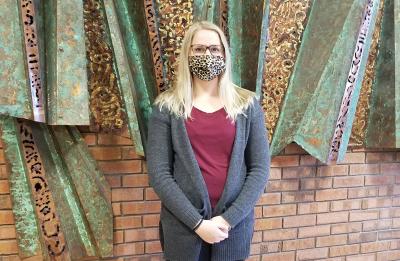
Ronnei plans to seek her master’s in school counseling. “I hope to attend UW-Stout. I have loved my time at Stout and would enjoy furthering my education here,” she said.
“If you love learning and understanding and want to promote the health and well-being of the foundation of a healthy society, families and relationships, HDFS is the field for you,” Allaback said.
HDFS students have the opportunity to select a concentration and learn more about families and interpersonal relationships to specialize in a population. Student-designed concentrations include adolescents; children, birth to age 12; family support services; and precounseling.
The program has an on-campus option and a flexible online delivery option for working professionals.
Students may earn certificates in school counseling and social work. The program is a path to many master’s studies, including mental health counseling, school counseling and social work.
UW-Stout’s human development and family studies has been reviewed by the National Council on Family Relations. It offers coursework covering the content required for the Certified Family Life Educator designation.





